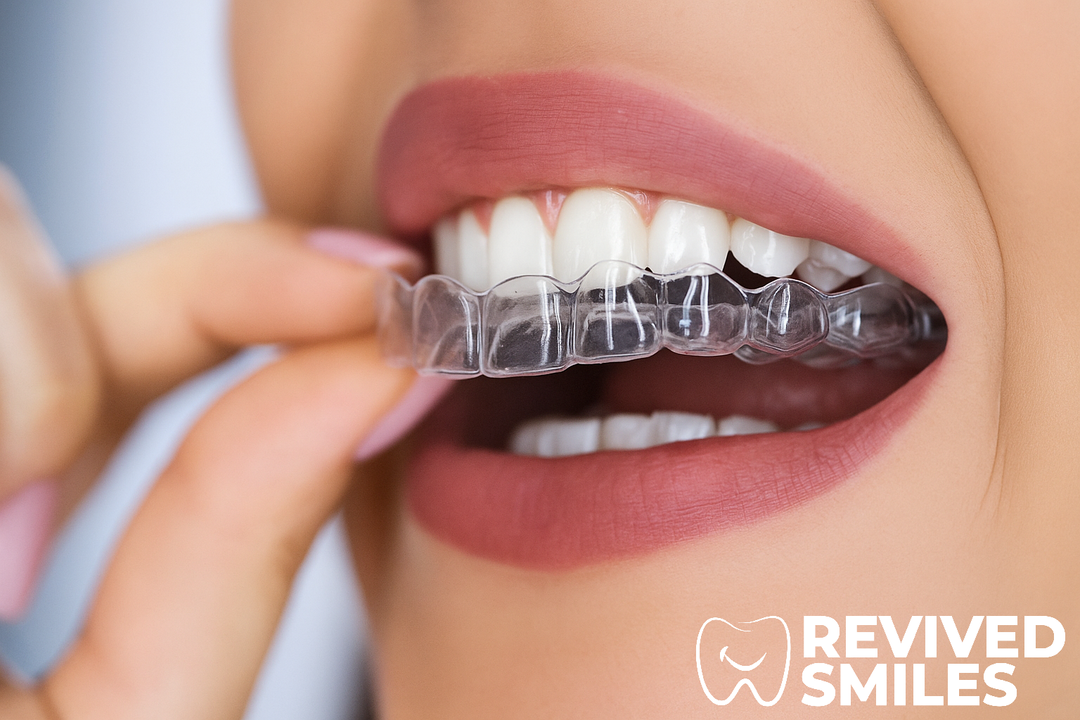Bad Fitting Dentures: Causes, Solutions, and How to Get Your Smile Back

Dentures should be your key to a confident, functional smile—not a source of pain and aggravation. But many people are dealing with bad or ill fitting dentures that slip, irritate or just don’t feel right. If that sounds like you, you’re not alone. Let’s get into what causes bad fitting dentures, the health risks and solutions that can change everything.
Bad Fitting Dentures
What Are Bad Fitting Dentures?
Ill fitting dentures are prosthetic teeth that don’t fit or sit right in your mouth. Instead of helping you with your normal daily functions, they may cause discomfort, slipping, or difficulty in chewing.
These issues usually occur from errors during the denture-making process or changes in your oral anatomy over time.
Symptoms of Bad Fitting Dentures
-
Discomfort and Soreness: Gums or jaw soreness.
-
Slipping or Loose: Dentures move when you talk or eat.
-
Difficulty Chewing: Trouble biting or chewing food. Food particles can become trapped between the gums and dentures, increasing the risk of gum disease and infection.
-
Speech Issues: Trouble speaking clearly.
The Emotional Impact
The effects of bad fitting dentures go beyond the physical. Many people feel self conscious, avoid social events or even stop smiling because of fear of their dentures slipping or embarrassing them. This emotional toll can affect mental health and reduce quality of life.
If any of these sound like you, it’s time to fix your dentures.
Bad Fitting Dentures
Knowing the cause of your denture problems is the first step to a solution.
1. Errors During the Denture Making Process
The initial impressions of your mouth is key. Any mistakes can lead to dentures that don’t fit right. This can happen when the impression is taken too fast or without taking into account the tiny variations in gum and lower jaw and structure.
These initial errors can add up over time and cause discomfort and functional issues. It is crucial to ensure that dentures fit properly to avoid discomfort and other related issues.
2. Bone and Gum Shrinkage
As you age your jawbone and gum tissues shrink. This is called bone resorption and it’s more common after tooth loss. So dentures that once fit perfectly may start to loosen and lose their function. Ill-fitting or loose dentures due to bone and gum shrinkage can lead to oral health problems if not properly addressed.
3. Cheap Materials
Low quality materials may not be durable and comfortable, leading to faster wear and poor fit. While budget options may seem attractive at first, they often require more adjustments or replacements and cost you more in the long run. It is best to stick to brands such as Valplast, TCS, and DuraFlex for quality partial dentures.
4. Wear and Tear
Dentures aren’t meant to last forever. Over time they can lose their shape, crack or become misaligned with your bite. Regular use and cleaning while necessary can also contribute to wear and tear of the dentures.
5. Dentures Misaligned with Natural Bite
A misaligned bite can cause painful or uneven pressure, discomfort and difficulty eating. This can happen during the initial fitting or as a result of changes in your oral anatomy. There are times when this is also caused by bad impressions.
Health Risks of Bad Fitting Dentures
Bad fitting dentures can do more than just annoy you; they can also harm you.
Physical Health
-
Gum Irritation and Sores: Constant rubbing or pressure can cause sores and infections. If left untreated these sores can get worse and increase the risk of oral infections.
-
Difficulty Chewing: Bad fitting dentures can limit your diet and potentially lead to nutritional deficiencies.
-
Jaw Pain and Headaches: Misaligned dentures can put extra stress on your jaw muscles and cause chronic pain or tension headaches.
-
Gum Disease: Neglected denture hygiene can lead to gum disease, which can cause significant discomfort and difficulties with wearing dental prosthetics.
Social and Emotional
-
Speech Issues: Slipping dentures can make speaking clearly a problem, causing frustration and self consciousness.
-
Loss of Confidence: The fear of dentures slipping in social situations can make you withdraw from social interactions.
Ignoring these issues can cause long term damage to your tongue, gums and overall oral health. You need to address them early to avoid compounding the problems.
Solutions to Bad Fitting Dentures
Luckily there are several ways to fix bad fitting dentures and get back to comfort and confidence.
1. Denture Adhesives
Denture adhesives provide temporary stability, they are a quick and cheap solution for slipping dentures. These adhesives create a seal between your gums and your loose dentures, giving you short term relief while you look for a permanent solution.
2. Soft Liners for Sensitive Gums
For those with sensitive gums, soft liners can provide a cushioning layer to reduce irritation and increase comfort. These liners are ideal for those patients with ongoing soreness or irregular gum surfaces.
3. Denture Maintenance

Regular cleanings and check ups can prevent wear and tear and keep your dentures in shape and fit properly. Professionals recommend:
-
Cleaning your dentures daily with a soft brush and non abrasive cleaner.
-
Storing them in water or denture soaking solution overnight to keep them in shape.
-
Using a denture cleaning solution to remove plaque and stubborn stains, disinfect the dentures, and keep them feeling fresh.
-
Annual check ups with your dentist to check their condition.
4. Transition to Implant Supported Dentures
If traditional dentures aren’t working, consider implant supported dentures for more stability and natural feel. Replacing missing teeth is crucial to improve appearance, bite, and overall oral health.
These dentures are anchored to dental implants, so they won’t slip and will fit perfectly. While the initial cost is higher, the long term benefits often outweigh the investment while preventing bone deterioration.
5. Teledentistry for Adjustments
Teledentistry services allow you to consult with professionals remotely, saving you time and convenience. This is perfect for minor adjustments or follow up appointments without the need to visit in person.
6. Custom Made Replacement Options
When dentures are beyond repair, replacing them with high quality custom made options will give you a better fit and better function. With advanced technology like 3D scanning and printing it’s never been easier to make precise and comfortable new dentures.
If you experience any issues with poorly fitting dentures, it is crucial to consult your dentist to prevent infections, discomfort, and the need for adjustments or replacements.
Benefits of Well Fitting Dentures
Getting a proper denture fit has many advantages:
-
Comfort: No more soreness and irritation.
-
Function: Chew, speak and smile with ease.
-
Confidence: Feel secure in social situations with dentures that don’t slip.
Well fitting dentures also helps in overall oral health by reducing gum damage and even pressure distribution in mouth while chewing.
Partial Dentures
For those with missing teeth or only a few teeth, partial dentures are a great option.
Benefits of Partial Dentures
-
Save Natural Teeth: Fill in the gaps without removing the remaining teeth.
-
Cost Effective: More affordable than full dentures or implants.
-
Aesthetics: Restore your smile seamlessly.
Flexible and acrylic partial dentures are the popular options to suit different needs and preferences. Flexible is for comfort and acrylic upper dentures is for durability and affordability.
How to Care for Partial Dentures
Caring for partial dentures involves daily cleaning and proper storage. Use denture specific cleaning solution and avoid using hot water which can warp the material. Regular dental check ups are also necessary to ensure a consistent fit. Proper care and maintenance wear dentures are crucial for those who wear dentures to avoid common problems and ensure comfort.
Cost Effective and At Home Solutions
For those looking for affordable options, Revived Smiles’ at home solution is a lifesaver. This process allows you to assess and adjust your dentures without frequent dentist visits. Affordable, user friendly and highly reviewed, they’re a great option for many.
Customer Reviews
Many at home denture users are satisfied with the ease of use and comfort. Reviews say you can get your confidence and function back without breaking the bank.
Final Thoughts
Bad fitting dentures don’t have to control your daily life. By knowing the causes, finding the right solutions and regular maintenance you can change your experience. Whether it’s an adjustment or an upgrade, act now and get a more comfortable smile tomorrow.
Ready to get started? Find solutions that fit your lifestyle and get back to eating, speaking and smiling worry free.





Leave a comment